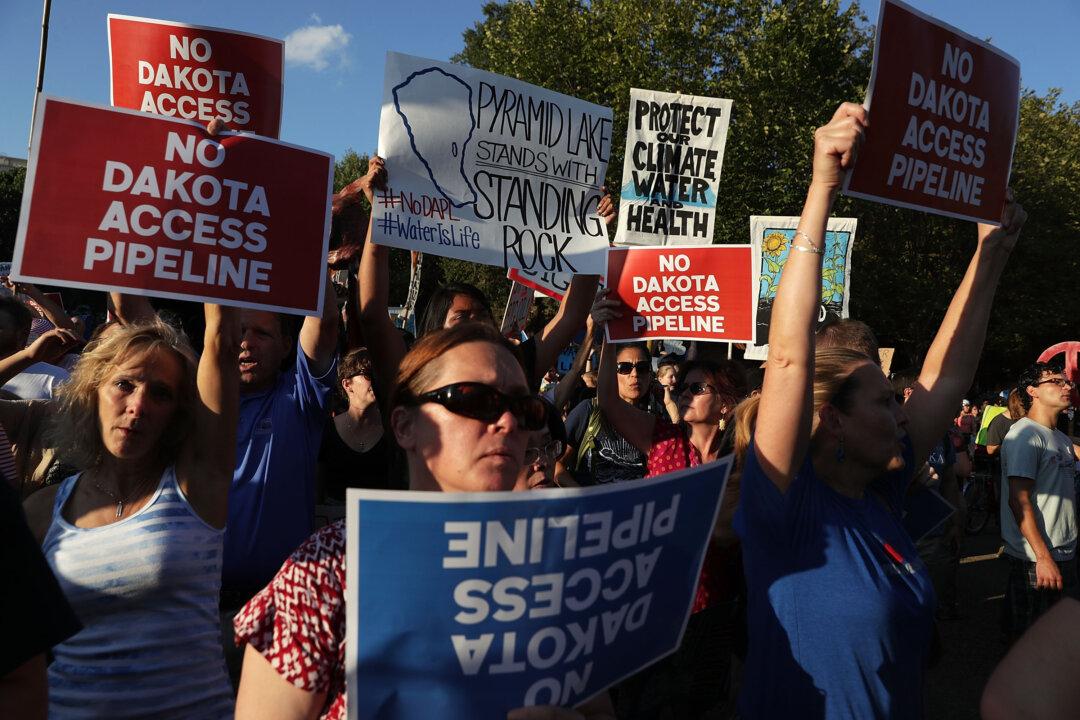Nearly $14 billion of investment in delayed pipeline projects in 14 states—including five “battleground” contests in the 2020 presidential election—could create more than 66,000 new jobs and boost the nation’s post-CCP virus economic recovery, according to a new study.
The delayed projects face environmental, judicial, and bureaucratic obstacles based on safety concerns and opposition to continued use of fossil fuels.





